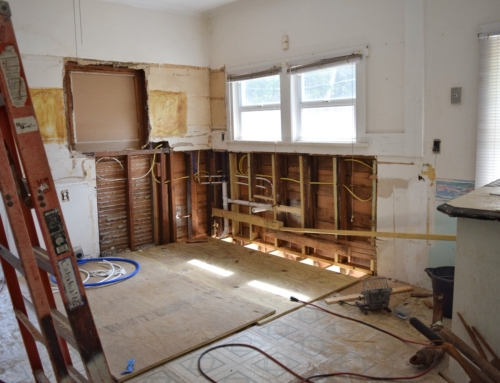Learn more about whether a home warranty is a smart buy for you…
There are many companies that will provide a home warranty when you buy a home, and there are just as many questions about whether it makes financial sense to buy one.
Many believe that a home warranty acts as a type of insurance policy for items not covered by your typical homeowner’s insurance policy, like foundation or structural damages. But in reality, a home warranty is a service contract between you and the provider that is designed to cover repair or replacement costs for other items in the home, like appliances, HVAC systems, pool equipment and other items.
While it may appear that buying some peace of mind to protect you against the risk of paying to replace something that stops working makes perfect sense, there are many aspects of buying a home warranty you need to know.
Different Coverages, Different Contracts
Not unlike an insurance policy, a home warranty contract is sold with different coverages, limits to the amount that will be paid and how long the contract will be in effect. But there can be a lot of fine print in a home warranty agreement that needs to be fully understood before you sign up.
A home warranty does not mean a free service call to your home when your kitchen faucet springs a leak, or your dishwasher stops working. You’ll still need to pay around $75 to $100 for a technician to come out to assess the problem. Your home warranty firm will recommend someone to visit your property once you file a claim. This can be helpful if you are new to the area and are unsure who to call to fix the problem.
You can buy different levels of home warranty coverage just as in a homeowners insurance policy. The more you pay, the higher levels of financial protection you should expect. You can find home warranties from a few hundred dollars per year up to several thousand dollars, depending on the company and what they say they’ll cover. This is why shopping diligently for the right warranty is so critical.
When you are buying a home, the REALTOR® who is marketing the property will often offer a home warranty as an incentive to the buyer, picking up the cost themselves to help facilitate the sale. First, you should determine to the best of your ability whether the real estate agent has any financial interest in the home warranty firm or receives any commission for selling one of their warranties. More importantly, studying the warranty and every paragraph it contains until you completely understand it is a key factor in deciding to take advantage of the offer.
Some systems and items in your home are covered in the majority of home warranties, while others require add-on coverage for items like the additional refrigerator you may keep in the garage or your septic system.
Do Your Homework on Home Warranties
You need to look closely at the things that are not covered under your home warranty contract as much as what is covered. Things like your flooring, paint, and structural deficiencies are usually not covered. But more importantly, the fine print of your contract will outline additional things the warranty will not cover, and some of those can come as a surprise to the home’s owner.
Terminology in the contract like “normal wear and tear”, “pre-existing conditions” and “improper maintenance” can provide a serious roadblock to getting your home warranty company to pay for necessary repairs. Warranty companies use pre-formulated tables to determine what normal where and tear may mean for things like a washer or dryer, refrigerator and more. In other words, there is a pre-determined life expectancy for your appliances, and if the warranty company tells you they won’t pay the claim because the appliance has simply outlived its life of expected service, you’ll be footing the bill for a new one.
Pre-existing conditions can also be a slippery slope when it comes to your home warranty. If the home inspector who inspected the property you are buying states in writing that “the washer is operational but is approximately 8 to 9 years old,” you may have trouble filing a successful claim if it breaks down during the warranty coverage period.
There are also limits or caps placed on the amount that will be awarded per year on your home warranty. You’ll need to pay very close attention to this amount. If you are in the unfortunate position of having your dishwasher, water heater and air conditioning system all fail within a specific period of time, you’ll likely be unable to collect on all of them.
Is a Home Warranty Worth the Cost?
There are many facets of buying a home warranty to carefully consider before you sign on the dotted line.
If you’re buying a new home, the builder will usually provide you with a warranty on the home and its associated mechanical, plumbing, electrical systems and appliances. And in many cases, when purchasing a resale property that includes appliances that are already protected by a manufacturer’s warranty or a transferrable warranty on the new HVAC system, a home warranty does not make sense for you.
If you have no ability when it comes to repairing things around the house and are purchasing a home with appliances or integral systems that may be older and nearing their life expectancy, doing your research on a home warranty purchase could mean reducing your risk of significant financial setbacks during the warranty’s coverage period.
As with every element of making a major purchase like a home, learning everything you can about buying a home warranty contract will save you money and allow you to sleep easy knowing your investment is properly protected.







Leave A Comment